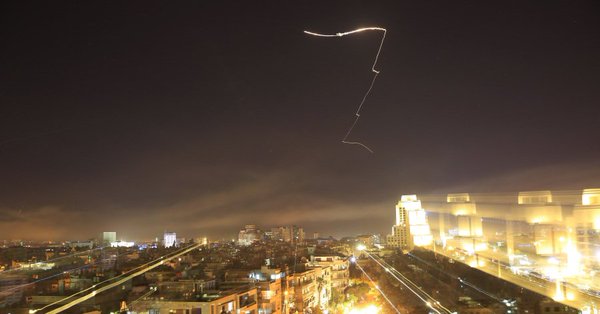Paris: Jordan is a key player in the Syrian war due to its geographical position, engaged both in the fight against jihadists and as host to a wave of refugees.
Here are some key facts about the tiny desert kingdom as it is gripped by major anti-austerity protests:
– The war next door –
Jordan — which shares borders with Saudi Arabia, Israel, Syria and Iraq — is directly affected by the Syrian conflict that started in 2011.
A member of a US-led anti-jihadist coalition, it intensified its bombardments on jihadist targets in Syria in February 2015 following the killing of one of its pilots, kidnapped and burnt alive by the Islamic State group.
The kingdom suffered several jihadist attacks in 2016 and closed its borders with Syria and Iraq in 2016, concerned about the infiltration of jihadists among arriving refugees. The border with Iraq was reopened in 2017.
About 650,000 refugees have been registered in Jordan by the United Nations Refugee Agency but local authorities put the number at more than one million.
– Monarchy and democracy –
Under a British mandate since the end of World War I, the Hashemite Kingdom of Jordan was created in 1946 by King Abdullah I.
His grandson Hussein set in motion a democratisation process that saw the first multiparty legislative elections in 1993, won by independents close to power.
The Islamist opposition Muslim Brotherhood has been present in parliament since elections in 2016, when their party won 16 out of 130 seats. They had boycotted legislative elections in 2010 and 2013.
Jordan’s parliament, which includes 21 women, has limited powers: King Abdullah II, in place since 1999, names the prime minister and the 55 members of the Senate.
– Troubled economy –
An arid country named after the river which forms its western border, Jordan has a surface area of around 92,300 square kilometres (35,500 square miles) and is home to 10 million people.
It has few natural resources and its sole outlet to the sea is the port of Aqaba at the northern tip of the Red Sea. It is one of the world’s most water-impoverished countries.
In recent years Jordan has faced major economic problems: its unemployment rate is at 18.5 percent and its debt is more than 90 percent of its gross domestic product.
The massive arrival of refugees has added pressure on Jordan’s finances.
More than ever the kingdom relies on foreign aid, notably from its historic ally the United States, which in February pledged over $1 billion in annual aid lasting to 2022.
In 2016 Amman secured a $723-million loan from the International Monetary Fund to last three years, in return for a series of austerity measures aimed at reducing debt.
Since January there have been repeated price rises including for staples such as bread, as well as extra taxes on basic goods.
A proposed new income tax law proposed by the government in May as part of these austerity measures sparked the current wave of protests.
– Tense relations with Israel –
Forty percent of Jordan’s population is Palestinian and over the years the kingdom has had tense relations with Israel.
The two countries have been officially at peace since 1994 and Jordan is guardian of sacred Muslim sites in Jerusalem.
Relations deteriorated in July 2017 after the death of two Jordanians who were shot dead by an Israeli security guard in Israel’s embassy in Amman.
The embassy reopened in January 2018, a few days after Abdullah expressed his concern over the controversial US decision to recognise Jerusalem as Israel’s capital.
Agence France-Presse

